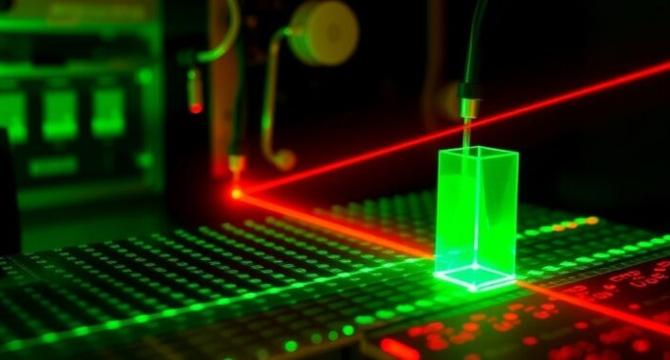Bioengineer
1w
383

Image Credit: Bioengineer
Quantum Engineers Enhance Laser Frequency Combs for Advanced Gas Sensing Sensitivity
- Researchers have used the technique of quantum squeezing to enhance the operational efficiency of optical frequency comb lasers for ultra-sensitive gas detection.
- Optical frequency comb lasers produce light in multiple wavelengths, enabling these lasers to serve as precise tools for identifying gas molecules but the quantum noise that accompanies these measurements limits measurement accuracy.
- Quantum squeezing improves the regularity of photon arrival times, increasing coherence in photon delivery and allowing scientists to make faster and more precise measurements of gas concentrations.
- The study demonstrated its efficacy using hydrogen sulfide samples, a pungent gas commonly associated with volcanic eruptions, with the quantum-squeezed frequency comb detecting the molecule nearly twice as fast compared to a conventional sensor.
- Quantum sensing technology could extend far beyond its current limitations, revolutionizing gas detection and characterization.
- The implications of squeezed quantum sensors are particularly relevant in medical diagnostics for quick detection.
- While the current work outlines promising advancement, further work is necessary to refine and adapt these sensors to various operating environments.
- Through continued exploration of quantum phenomena the scientific community stands on the precipice of a new frontier.
- The research team comprises expertise from CU Boulder and Université Laval who united by a vision to unlock nature’s mysteries through the lens of quantum physics.
- The technique of quantum squeezing acts as a key victory over the randomness that governs behaviors at quantum scales.
Read Full Article
23 Likes
For uninterrupted reading, download the app